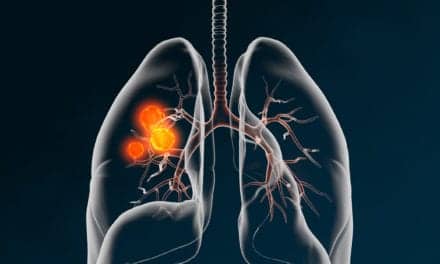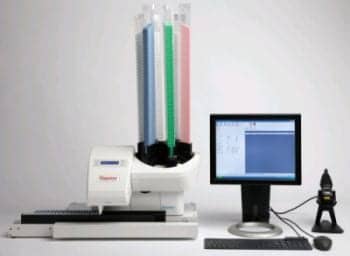Physicians from Kaiser Permanente and the National Cancer Institute report in the March issue of Obstetrics & Gynecology that results from an evaluation of more than 800,000 Pap and HPV tests conducted at Northern California Kaiser Permanente dispel the notion that excessive numbers of women would require increased surveillance and follow-up when HPV testing is implemented.
Cervical cancer is a preventable cancer with a primary known cause – the human papillomavirus (HPV). QIAGEN developed and markets the digene® HPV Test, a cervical cancer screening test that detects the high-risk types of HPV that cause cervical cancer and identify women most at risk for developing the disease.
In the study “Five-Year Experience of Human Papillomavirus DNA and Papanicolaou Test Cotesting,” Dr Philip E. Castle of the National Cancer Institute, together with Dr Walter Kinney of Kaiser Permanente and a team of other contributors, focused on the early results of combining HPV and Pap testing for routine cervical cancer screening. Kaiser exclusively used QIAGEN’s Hybrid Capture® 2 High-Risk HPV DNA Test for its HPV detection in the study (also called the digene HPV Test) and conventional cytology for its Pap testing.
The physicians reported that 90.8% of the 580,000 women aged 30 and older had "double-negative" results, meaning their Paps were normal and they did not have high-risk types of HPV so were at low risk for developing cervical cancer. Overall, 6.27% of co-tests were carcinogenic HPV positive, and 2.28% showed carcinogenic HPV infection together with Pap results showing pre-cancerous cell changes or inconclusive results. Only 3.99% were found HPV-positive with a normal Pap result. Under Kaiser’s previously published protocol, this group of women would be scheduled for re-testing in 12 months to monitor the persistence of HPV infection. The study authors concluded, "In a general screening population, concerns about excessive HPV test positives among women aged 30 years and older are not borne out.”
Investigators also revealed that among those women who tested positive for high-risk HPV infection with the digene HPV test, patients in the age segments of 30-34 years (10.82%) and 35-39 years (8.03%) had the highest infection rates and also were the groups with the highest prevalence of CIN2/3, thus reinforcing the clinical benefit of reserving routine HPV testing for women age 30 and higher.
"These study results illustrate the benefits to large health systems of combined screening with the digene HPV Test and a Pap for all women age 30 and older, and dispels the notion that excessive numbers of women would require increased surveillance and follow-up when HPV testing is implemented," said Dr. Jim Godsey, senior vice president research & development North America for QIAGEN. "Some doctors have exercised caution using HPV testing out of now-disproven concern that they would have a lot of patients with Pap normal/HPV positive test results who would require counseling and follow-up. This study clearly demonstrates that this is not the case, and importantly shows cotest outcome rates within the very large and diverse patient population that Kaiser serves. This is good news to the clinical community who may have been overly anxious about the management of a large number of HPV positive, Pap normal test results. In fact, by identifying the women who test positive for infection with one of the cancer causing types of HPV –- and who are hence at greater risk of developing cervical disease –- clinicians can more effectively direct treatment and follow-up, potentially detecting more early stage disease and saving lives."
Kaiser Permanente Northern California performs HPV testing with the digene HPV Test and provides Pap and HPV cotesting to its female patients age 30 and older to better identify those at risk of developing cervical cancer. The digene HPV Test detects the presence of high-risk types of HPV, the primary cause of cervical cancer. The test is recommended for use along with the Pap to screen women age 30 and older, the group most at risk of developing cervical cancer, as well as for follow-up evaluation in women whose Pap results are inconclusive.
“We recognize that women who test positive for carcinogenic HPV and negative by cytology are at an elevated risk for cervical pre-cancer and cancer compared with women who test negative on both,” the study authors write, suggesting that future clinical research will need to focus on identifying “the best strategies for managing women who test positive for carcinogenic HPV and negative by cytology.”
While the Pap test relies on a laboratory technician to manually look for cell changes that may signal cervical disease, QIAGEN’s digene HPV Test, which uses the company’s proprietary Hybrid Capture 2 (hc2) technology, uses advanced molecular technology to identify the presence of the genetic code (DNA) of 13 high-risk, cancer causing types of HPV.
More than 40 million tests for carcinogenic HPV have been performed with the digene HPV Test. FDA-approved since 1999, the digene HPV Test has been published in more than 300 peer-reviewed journal articles and studied in clinical trials involving more than 825,000 women worldwide.
Source: QIAGEN Inc



